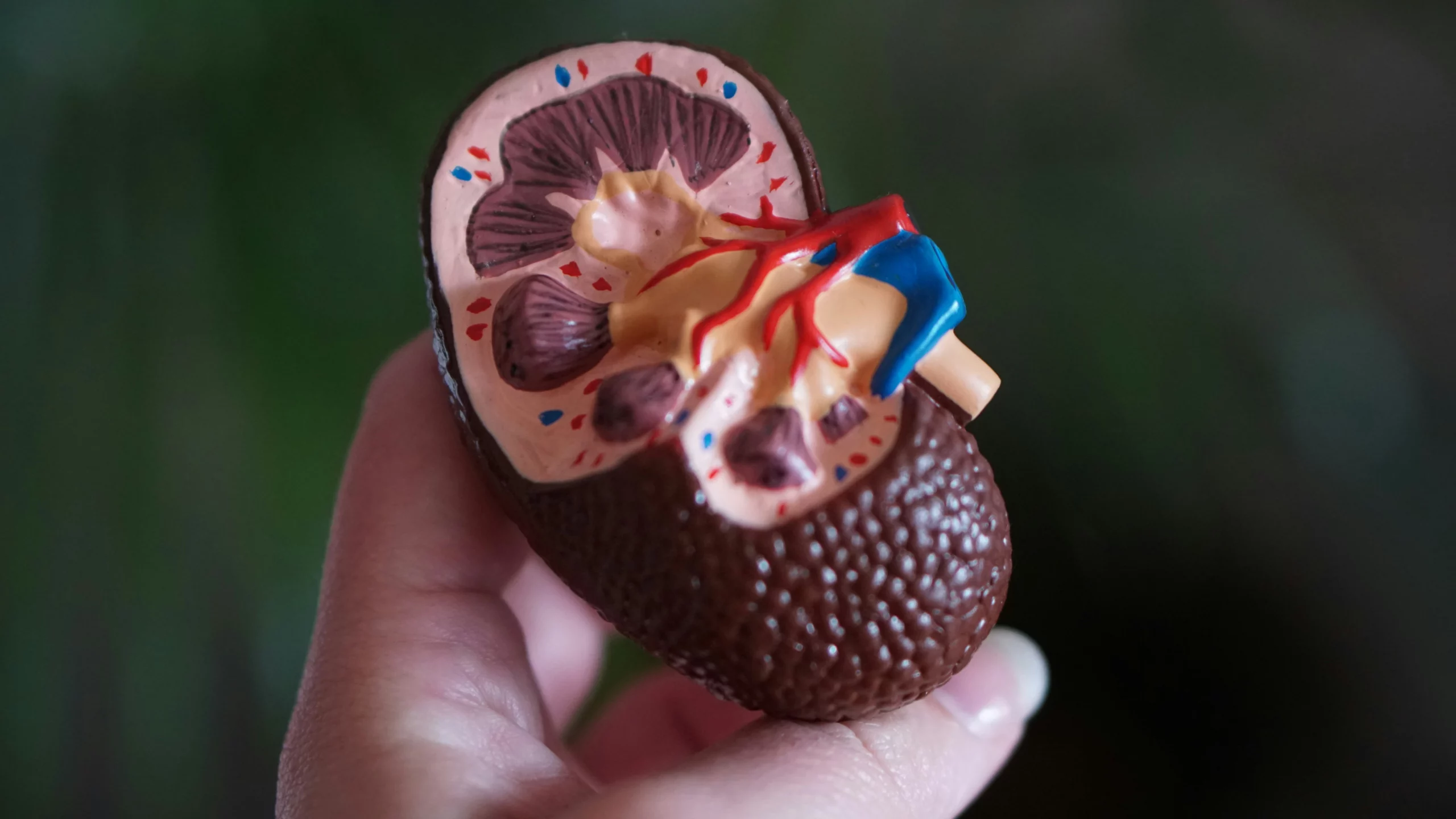Strep throat, with its signature sore throat and fever, can be a distressing experience. Simple actions like swallowing can become excruciatingly painful. If you or someone close to you has been diagnosed, you’re likely seeking ways to alleviate the discomfort swiftly. Unfortunately, there is no immediate remedy. It takes time for antibiotics and your immune system to combat the inflammation. However, several self-care practices and home remedies can ease the symptoms while your body heals.
Table of Contents:
- Use ibuprofen (Motrin)
- Try Nin Jiom
- Use lozenge or honey
- Drink more water
- Use a humidifier
- Consume milder foods
- Gargle with salt water
- Avoid smoking and pollution
- Rest
Use ibuprofen (Motrin)
Ibuprofen, commonly known by the brand name Motrin, is an effective option for self-care when dealing with strep throat. It works by relieving pain and reducing inflammation, which can help alleviate the discomfort associated with swallowing and make eating easier. Additionally, ibuprofen can lower fever, a common symptom of strep throat.
When using ibuprofen for strep throat, it’s essential to start with the lowest recommended dose based on your age or weight. If this initial dose does not provide sufficient relief, it can be gradually increased to the higher end of the recommended dosing range. However, it’s crucial to avoid exceeding a total of 1,200 mg of ibuprofen within a 24-hour period.
For children, the appropriate dosage of ibuprofen is determined by their weight and age, so it is advisable to consult a healthcare professional to ensure accurate dosing and to determine the maximum daily amount that can be safely administered.
If ibuprofen is not a suitable option due to pregnancy or pre-existing medical conditions that may be aggravated by its use, acetaminophen (Tylenol) serves as a viable alternative. While some evidence suggests that ibuprofen may be more effective in relieving sore throat pain, acetaminophen remains a widely accepted and recommended choice when ibuprofen is not an option. Consulting with a healthcare provider can help determine the best approach for managing symptoms safely and effectively.
Try Nin Jiom
Nin Jiom Pei Pa Koa, often referred to simply as Nin Jiom, is a traditional Chinese herbal remedy widely recognized for its soothing effects on the throat and respiratory system. Rooted in Chinese medicine, this syrup is formulated with a blend of natural herbs, honey, and loquat, designed to alleviate cough, relieve sore throats, and ease respiratory discomfort.
Nin Jiom is particularly effective in addressing the symptoms of colds, flu, and other respiratory conditions. The honey and loquat work together to coat and soothe the throat, while the herbal ingredients target the underlying causes of irritation and inflammation. This makes it a popular choice for those seeking a natural alternative to over-the-counter medications.
To use Nin Jiom, simply take the recommended dosage directly from the bottle or mix it with warm water to create a comforting herbal tea. The syrup is safe for both adults and children, though dosage should be adjusted according to age and weight. Its pleasant taste and natural composition make it a gentle yet effective remedy for a wide range of throat and respiratory issues.
Use lozenge or honey
Lozenges and throat sprays containing benzocaine or menthol can be effective tools in managing the discomfort of strep throat. These ingredients work by temporarily numbing the back of the throat, which can provide significant pain relief. This numbing effect can make it easier to drink fluids and get restful sleep, both of which are essential for recovery. However, it’s important to be cautious, as benzocaine can also numb other areas of the mouth, such as the cheeks and tongue. Because of this, it’s advisable to avoid eating while the mouth is numb to prevent accidental injury.
For children who are too young to safely use lozenges, honey serves as an excellent alternative. Honey is a natural remedy that can soothe sore throat pain in both children and adults. It’s safe for anyone over the age of 12 months and can be taken without concern for side effects or dosage limits. Simply take a spoonful as needed to ease the discomfort. For those who prefer a different approach, honey can also be stirred into warm tea, though care should be taken to ensure the tea is not too hot, as excessive heat can further irritate the throat.
Drink more water
Staying hydrated is crucial when you’re dealing with strep throat, especially if your appetite is low or if you’re running a fever. Cold fluids play a dual role in self-care for strep throat. First, they provide temporary pain relief by numbing the throat, which can make swallowing more manageable. Additionally, staying hydrated supports your overall recovery process.
Throughout the day, sip on cold fluids to soothe your throat. Plain water is always a good option, but flavored fluids can add variety, as long as you avoid anything citrus-based, which can irritate the throat. Cold smoothies and ice cream are also excellent choices, as they not only provide hydration but also some much-needed calories. If you’re struggling to consume these, consider ice chips or popsicles as gentle alternatives that can still offer relief and hydration. This simple yet effective approach can make a significant difference in your comfort level as you recover from strep throat.
Use a humidifier
Dry air can exacerbate the discomfort of an inflamed throat, making it more difficult to breathe and worsening irritation. In contrast, moist air is gentler on the throat, helping to keep it hydrated and reducing overall discomfort. Using a humidifier is an effective way to add moisture to the air in your home, creating a more comfortable environment for your throat as it heals.
If you don’t have a humidifier, there are other ways to introduce moisture into the air. For instance, sitting in your bathroom with the door closed after a hot shower allows you to breathe in the steam, providing similar relief. Additionally, placing bowls of water around your living space can slowly increase humidity as the water evaporates, though this method is less effective than using a humidifier. These simple adjustments can help create a more soothing atmosphere, making it easier for your throat to recover from strep throat.
Consume milder foods
When you have strep throat, the back of your throat is swollen, inflamed, and easily irritated. Certain foods can worsen this discomfort, particularly those that are crunchy, spicy, sour, or acidic. These types of foods can further aggravate your symptoms, making eating a painful experience.
To minimize irritation and support your recovery, it’s important to stick to soft and soothing foods. Congee and porridge are excellent choices during this time. Both are gentle on the throat, easy to swallow, and provide essential nourishment. By opting for these softer, milder foods, you can help ease your symptoms and make mealtimes more comfortable while your throat heals. This approach not only offers relief but also ensures you maintain your strength and nutrition as you recover.
Gargle with salt water
Saltwater gargles, while not backed by extensive scientific evidence, are often recommended by experts as a simple and safe home remedy for managing strep throat symptoms. The practice involves mixing half a teaspoon of salt into eight ounces of warm water to create a solution that can be used to gargle.
To use, take a mouthful of the solution, tilt your head back, and gargle before spitting it out. This process can help loosen mucus, soothe throat irritation, and provide temporary pain relief. The warmth of the water combined with the salt’s natural properties can make it easier to manage the discomfort associated with strep throat, even if only for a short time.
Avoid smoking and pollution
While recovering from strep throat, it’s crucial to avoid anything that could further irritate your throat. Environmental factors like pollen and air pollution can aggravate an already inflamed throat.
Smoking is another significant irritant. Even without an infection, smoking can cause a sore throat, and inhaling harmful chemicals into an already inflamed throat can exacerbate the pain. If you’re a smoker, consider quitting or at least reducing your smoking during recovery to give your throat the best chance to heal. Additionally, it’s important to avoid secondhand smoke, as exposure to these fumes can also hinder your recovery.
Rest
When you’re dealing with strep throat, it can be challenging to slow down and rest, especially if you’re used to pushing through illness. However, this approach can be counterproductive. Your body’s immune system needs time and energy to fight off the infection, and rest is a crucial part of that process.
When you don’t get enough sleep, your body produces more inflammatory cytokines, which are chemical messengers that can actually worsen inflammation. By prioritizing rest, you support your immune system in clearing the infection more effectively, potentially speeding up your recovery.
In addition, maintaining good sleep habits when you’re healthy can strengthen your immune system, helping to prevent infections in the first place. Taking the time to rest when you’re sick is not just a short-term investment in your recovery but also a long-term strategy for better health.















